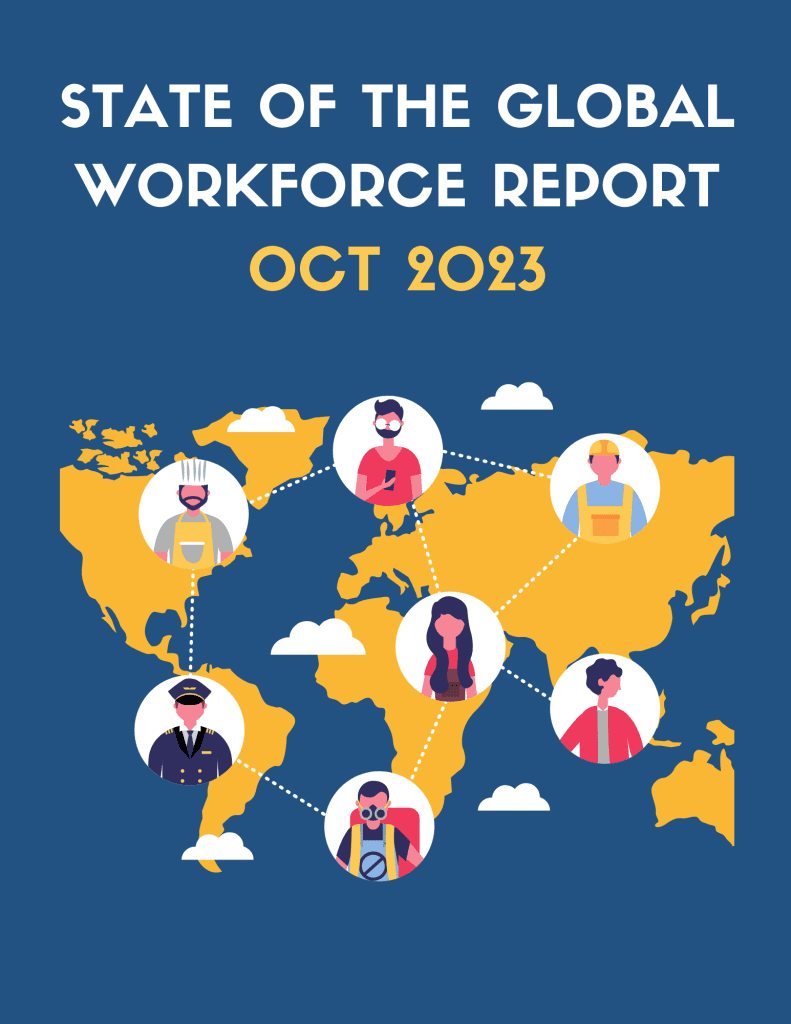State of the Global Workforce Report, October 2023
- Home
- State of the Global Workforce Report, October 2023

No Worker Left Behind is proud to release its “State of the Global Workforce Report, 2023“.
Our comprehensive report unveils critical insights into the complex tapestry of today’s employment environment, spotlighting areas such as remote work dynamics, employee growth and development, diversity and gender equality, the advent of automation and AI, and the paramount factors influencing employee well-being, engagement, and satisfaction.
These invaluable insights present a dual narrative: On one hand, we witness a workforce that is increasingly engaged, adaptable, and optimistic about the future, appreciating the flexibility offered by remote work arrangements, the potential for skill development, and the benefits of a diverse and inclusive workplace. On the flip side, there’s a discernible undercurrent of job insecurity, stress, compensation dissatisfaction, and a cry for more organizational support in skill acquisition and navigating through the uncharted waters of AI and automation.
Executive Summary
1. Remote Work Revolution:
A surprising 58% of respondents feel that the transition to remote work has enhanced their job satisfaction.
Implication: It’s high time organizations evolve their remote work policies to meet growing demand.
2. Employee Engagement & Satisfaction:
Alarmingly, 60% of global workers report experiencing stress at work.
Implication: Beyond just offering flexible schedules, organizations must take a holistic approach to employee well-being.
3. Diversity & Gender Equality:
76% of respondents believe that diversity and gender equality is more than a trend; it’s a commitment.
Implication: Organizations need to focus on substantive, long-term policies for genuine inclusivity.
4. Training & Development:
A significant 40% of the workforce expressed the need for continuous training and skill development.
Implication: Employers need to invest in ongoing learning and upskilling programs.
5. Future of Work:
Though automation and AI evoke mixed feelings, 69% hold an optimistic view about these technological advancements.
Implication: Policymakers and businesses must ensure that workers are prepared for these changes.
To read the complete report and see the detailed findings click the link below.
